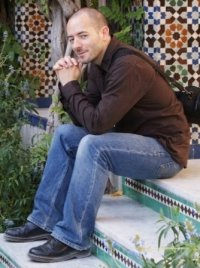Dogen's Genjo Koan: Section Eleven
Dogen finishes with a koan.
Mayu, Zen master Baoche, was fanning himself. A monk approached and said, “Master, the nature of wind is permanent and there is no place it does not reach. Why, then, do you fan yourself?”This is the heart of the Genjo koan and directly addresses the 'Great Doubt' that he set off from Japan to China to resolve - if it is the case that we already have (or are) Buddha nature - why do we need to practice? Or, in the terms of the metaphor he uses here - if air is everywhere, why does Master Baoche bother to fan himself? There is a kind of nihilistic interpretation of Buddhism which implies that since eveything is already empty or already awakened, there is no need to practice - yet it is clear that practice is required. So is the teaching of universal Buddha nature wrong?
“Although you understand that the nature of the wind is permanent,” Mayu replied, “you do not understand the meaning of its reaching everywhere.”
“What is the meaning of its reaching everywhere?” asked the monk again. Mayu just kept fanning himself. The monk bowed deeply.
The actualization of the buddha-dharma, the vital path of its correct transmission, is like this. If you say that you do not need to fan yourself because the nature of wind is permanent and you can have wind without fanning, you will understand neither permanence nor the nature of wind. The nature of wind is permanent. Because of that, the wind of the buddha's house brings forth the gold of the earth and makes fragrant the cream of the long river.
There are some slight variations in the the translation of this passage with permanent sometimes translated as 'stationary', 'constant' or 'never changing' and 'reaching everywhere' sometimes translated as 'universal action', 'universally present', 'principle of its omnipresence' or 'blowing everywhere'.
So what does it mean? The air represents the universal dharma or intrinsic Buddha Nature. Why isn't it enough just for the air to exist ? Why isn't it enough just for the air to be everywhere? Why do we need to practise fanning/Buddhism as well?
If you say that you do not need to fan yourself because the nature of wind is permanent and you can have wind without fanning, you will understand neither permanence nor the nature of wind.
Master Baoche clearly rejects the notion that practice is unnecessary or that there is any contradiction between the universality of Buddha and the need for practice. However, when it comes to explaining why we need to practice his words are not forthcoming. He responds with an action - fanning himself. Fanning here means Buddhist practice. So his response as to why we need to practise (when Buddha is universal) is the act of practicing itself.
I wonder if this satisfied the monk. To some it might appear as obscurantism or simply the revelation that there is no reason to make any effort to practise at all. If Master Baoche did not fan himself would the air not still be everywhere?
The nature of wind is permanent. Because of that, the wind of the buddha's house brings forth the gold of the earth and makes fragrant the cream of the long river.
Dogen makes it clear that there is indeed value in practice. The practice of the Buddha Dharma ('the wind of the buddha's house') brings forth or reveals the treasures of the earth (gold) and turns the river to cream, or rather to ghee as is found in some translations. Ghee is a liquid clarified butter that is produced traditionally in India. It is held to be sacred and is used in Vedic/Hindu rituals and is considered to be food for Devas. It's also a staple ingredient in cooking. Vedic philosophers believed that the ghee was the essence of milk (the cow being a sacred animal) and used it as a ritual representation of the Atman (soul). This sort of essentialist thinking is alien to the Buddha's teachings which indicate that nothing has an essence or unchanging self-nature. However, the Buddha himself used ghee as a metaphor for spiritual refinement.
From a cow comes milk; from milk, curd; from curd, butter; from butter, ghee; from ghee, the skimmings of ghee, and that is reckoned the best; even so, monks, among these four individuals the person who is engaged in promoting his own good and also the good of another is the foremost, the chief, the principal, the best and the supreme.So, Dogen is saying that although Buddha nature is always manifested, Buddhist practice is necessary to reveal it.
- Chavalata Sutta/ Anguttara Nikaya IV.95
The air has to be known and to do that we have to fan it across our skin. Gold is always present in the earth, but it cannot be seen until 'the wind of buddha's house' reveals it. It also transforms the base substance of milk into purified ghee or reveals the ghee within it. These are metaphors for the transformation of samsara into nirvana. To experience Buddha Nature and it's universal nature we need to practice.



